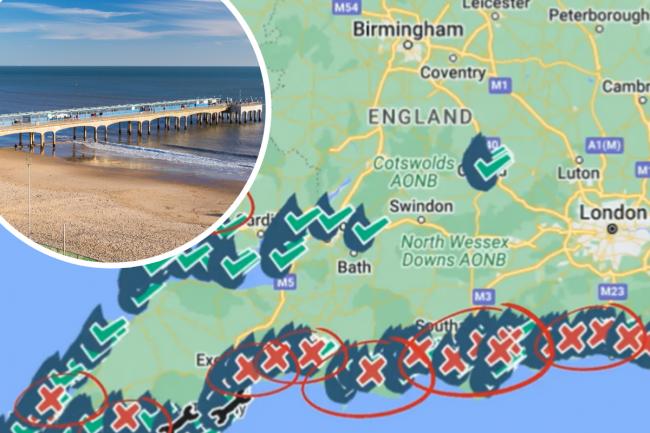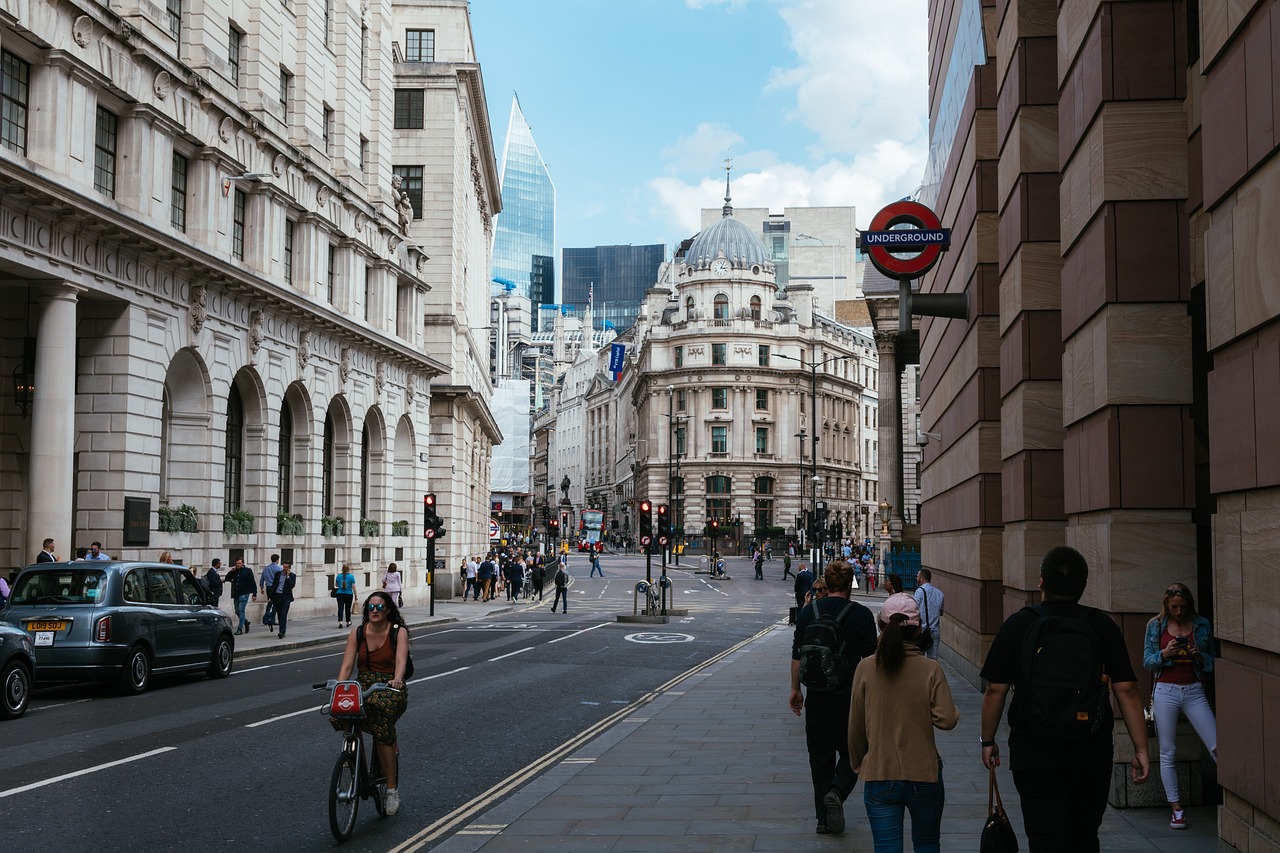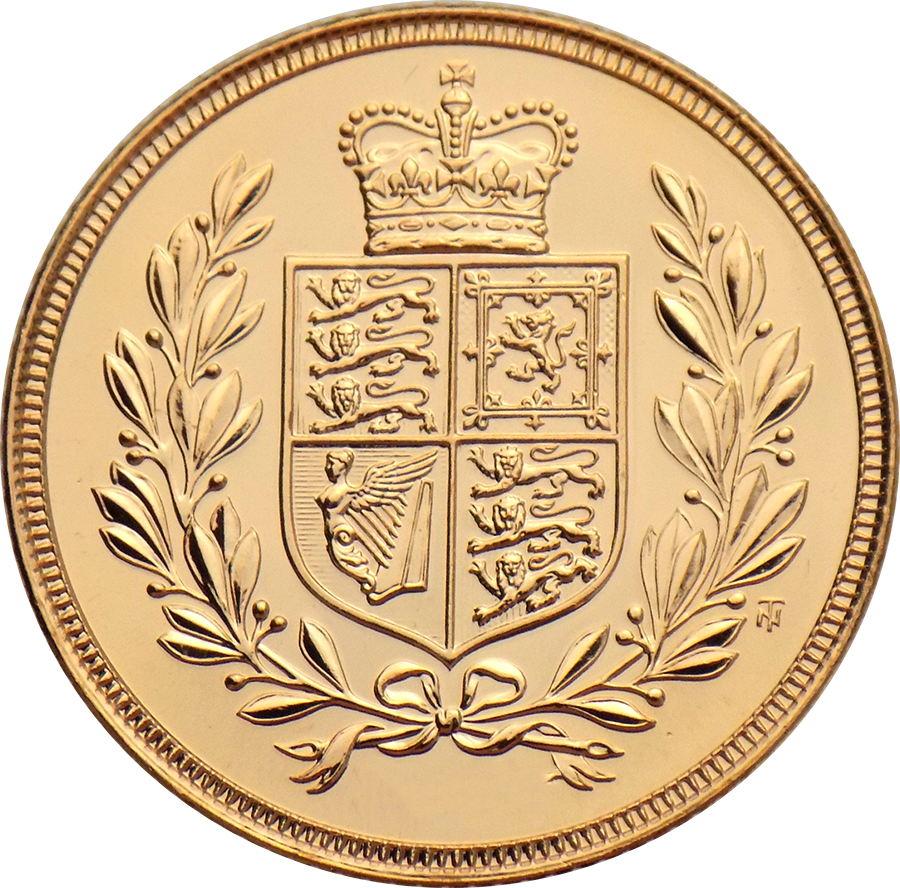Our Manifesto
Forty Straightforward Guarantees To Radically Grow The British Economy TaxationThe EconomyOur Online Manifesto - 40 Simple, Straightforward Promises
Read On The Move On Your Phone Offline In Plain English!
Latest Blog Posts
Pro-Business Political Policies: Boosting Success for UK Businesses
In the dynamic landscape of business, the intersection of politics and commerce plays a crucial role in shaping the success and growth of businesses. Political policies, with their far-reaching implications, have the power to either propel businesses forward or
Boosting Business Competitiveness: The Role of New Politics Party UK
In the complex tapestry of modern society, politics and business competitiveness are undeniably intertwined.
Enhancing Business Relations: The Intersection of Politics and International Business
In the dynamic landscape of global commerce, the intricate relationship between politics and international business cannot be understated. Politics, with its power to shape policies, regulations, and decision-making, has a profound impact on the world of business. Conversely, the
Transforming UK Business Politics: Empowering the Startup Ecosystem
In the dynamic world of business, the interplay between politics and entrepreneurship has always been a subject of great interest. The United Kingdom, with its vibrant startup ecosystem, is no exception.
Transforming UK Business with BEP’s Trade Policies
In the intricate web of global commerce, the interplay between politics and trade policies holds significant sway over the fortunes of businesses. Politics, with its power to shape policies, regulations, and agreements, has a profound impact on the world
Revitalizing Business Regulation: A New Politics Party UK Perspective
In the intricate realm of politics, where decisions are made that shape the destiny of nations, the role of business regulation cannot be understated. Business regulation serves as the backbone of a thriving economy, safeguarding the interests of both
Enhancing Business Growth: The Role of Politics and Corporate Governance
In the ever-evolving landscape of business, it is crucial to understand the intricate relationship between politics and corporate governance. Corporate governance refers to the set of rules, practices, and processes by which a company is directed and controlled, ensuring
I Vow to Thee, My Country Orchestral; The Planets Suite
1-6: taxation
1. Abolish NICS, Inheritance Tax & Stamp Duty. Unnecessary high double taxes to be abolished.
2. VAT, Fuel & Alcohol Duty Down 50%. Unnecessary high duties reduced.
3. Corporation Tax Down 25%. Taxes reduced for business.
4. Business Rates Reduction. Multiplier to encourage small business growth by reducing business rates to be expanded.
5. Council Tax Price Cap – We will set a Council Tax price cap at £1500 to help families and restrict councils’ creeping spending increases.
6. Raise Income Tax Thresholds – We will unfreeze income tax thresholds and raise them to lower income taxes.
1. abolish nics, inheritance tax & stamp duty
UK Citizens are subject to 21 major taxes when submitting tax returns in a tax system featuring over 100 total taxes.
NICS, Inheritance Tax & Stamp Duty are a subset of ‘Double Taxation’ – Taxes on money already earned.
These taxes are easily avoided by anyone willing to store their assets in an offshore bank or cryptocurrency, and are subsequently paid only by the most honest, who should not be penalised for it. They are not fit for today or tomorrow’s digital world.
These taxes are significant earners for HM Treasury, but incur major and needless bureaucratic costs to collect; the money would be far better spent in the hands of the British public who earned the funds in the first place.

2. reduce vat, fuel duty & alcohol duty by Over 50%
VAT, Fuel Duty and Alcohol Duties taxes are profits deprived from Retailers, Energy Companies and Breweries, all businesses that aim to innovate, grow and export in the UK.
The Business & Economics Party seeks to help grow businesses and help them to continuously modernise. By taxing these goods so highly in the UK, it inhibits their growth and reduces sales.
Reducing these taxes will secondly benefit consumers by easing the costs of living, improving the quality of life in the UK.
State goals of converting breweries to be solar powered, or energy companies to begin environmental projects cannot be achieved whilst they are loss-making from paying such high taxes supporting the state.

3. Reduce corporation tax, business duties and road tax by over 25%
Taxes on business reduce innovation and growth.
The costs of administration are not worth the costs of allowing private and public businesses to spend their money on growth.
We will reduce public spending in line with our reduction in taxation. Any necessary spending that we cannot reduce we will continue to spend through the economic tool of high-powered money expansion directly to essential public servants along with other monetary public tools.
4. REDUCE BUSINESS RATES FOR SMALL AND INDEPENDENT BUSINESSES
We will introduce a new business rate ‘multiplier’ for independent businesses such as sweet shops, cafe’s and pubs, that will reduce the total rate for small businesses.
Another business rate multiplier for businesses with between 2-5 sites, and another for businesses with between 6-20 sites.
All groups with 20 sites or less will benefit, in order to promote business expansion, however the multiplier will especially help independent businesses for which the multiplier is weighted most strongly.
Previous governments have seen that small businesses need tax relief to compete against multinational chains, but have not gone nearly far enough – currently the small business multiplier reduces tax on small businesses only if the rateable of the business is less than £51,000.
5. Council Tax Cap
Council Tax bills are set to rise to on average £2,159 by the 2024/25 tax year.
The conservative government will see the average British Band D home have a Council Tax rise of £261 per year or roughly 5% over the next three years.
Council Taxes have been increasing for 30 years. The average band D council tax bill in England is £1,898. This is an increase of 111 per cent in cash terms from 2001-02, when the figure was £901. We plan to introduce a price cap at £1500, however this may rise due to worsening economic conditions.
A total of 104 authorities have council tax bills of over £2,000, around one third of the councils in England. The number of councils charging over £2,000 has almost trebled since 2020-21 when 36 councils charged over £2,000.
Residents in Nottingham pay the highest council tax in England at £2,226. Residents in Westminster pay the lowest at £829. Wandsworth is the only other authority charging less than £1,000.
7-9: Bureaucratic burden
7. Eliminate CIS Scheme: Reduce fraud in the construction industry.
8. Free Visa Applications: Paid visa applications costing thousands are a spit in the eye to those who obey the law whilst illegal immigrants live in hotels paid with taxes.
9. Remove Profiteering Toll Bridges: The construction costs for nearly all English toll bridges were met long ago. All Scottish and Welsh toll bridges were long ago abolished. They are simply council cash cows damaging the economy.

7. Eliminate CIS Scheme
Under the Construction Industry Scheme ( CIS ), contractors deduct money from a subcontractor’s payments and pass it to HM Revenue and Customs ( HMRC ).
CIS is an unmitigated failure that punishes legally operating companies alone, failing to target fraudulent operators that obviously avoid the system.
HMRC is also aware that organised crime groups are setting up businesses with the intention of fraudulently failing to pay VAT and making incorrect income tax deductions.
To stop the inappropriate punishment of legally operating businesses (due to such things as late filing) we will merge CIS with PAYE and reduce penalty fees which run as high as £3000.

8. Free Visa applications & Reduced IHS SURCHARGE
The British Visa System discourages legal migration by charging prohibitive costs to live and work in the UK. It would cost a person today married to a British citizen over £15,000 and 10 years to become a UK citizen vs less than £100 and 3-5 years in Ireland.
The IHS (Immigration Health Surcharge) was first introduced in 2015 costing £200 for persons moving to the UK for a period of six months or more to be able to use the NHS – these continuous fees.
This fee increased to £400 in 2018 then to £624 by 2021. The speed of these increases means it is impossible to budget for them. For the 10 year period in which it would take a married person to gain UK citizenship, this costs £6240.
There are over 100 types of visa to the UK, some of which include:
Innovator – £1021
Health & Care Worker – £464
Student Visa from UK – £475
Nationality Registration – £1,206.
Premium Sponsor Service (12 months) Student sponsors – £8,000
The Republic of Ireland requires no visa fees to move there, IHS surcharge or hidden costs like many other developed countries and the UK not long ago! This fast change has been discriminatory and unfair on highly skilled, often married immigrants playing by the rules.

9. Remove Profiteering Toll Bridges UK
Already all toll bridges have been made free in Scotland and Wales. All Remaining English toll bridges have however gone up in price and become increasingly exploitative in pricing.
This needlessly and inexplicably discriminates against locals in the vicinity. Almost as a rule these bridges are in poorer areas such as Southampton, East London and the Midlands and in most cases the construction cost of the bridges have all been paid for!
Toll Bridges are a clear-cut example of consumer exploitation from Over-Privatisation. Example: The M6 Toll opened in 2003 cost £2/car. According to the average inflation rate of 1.98% and cumulative inflation of 47.89% this should cost £3 today, instead it costs from £5.50-10.90 per medium to large vehicle.
10-13: economic policy Areas
10. Bank of England: Will again be within Government purview. MPC will be formed of monetarists making decisions on economic reality not theoretical fantasies.
11. Pragmatic, Modern Economic Policy: We will be using the most modern policy tools, engaging monetary economists following the footprint of monetary tools used in high-growth economies.
12. Community & National Bank Act: Act promoting bank proliferation for the UK economy to promote exports, growth and modernisation of key performing UK sectors.
13. Speculative Asset Investment Act: Act to prevent speculative asset investment, which does not result in output and promote investment in the UK economy for the medium and long term.
10. bank of England & Government ReUnification
In 1997 Gordon Brown decided to give the Bank of England autonomy, freeing it from political influence. The upshot was the establishment of the Monetary Policy Committee (MPC).
The business community was delighted, believing a BofE free to decide its’ own fate would make better economic decisions without the hindrance of Government interference. Unfortunately the business community did not account for the hubris of the members of the MPC, which over the years has not diminished.
One example that nicely summarises this is from the memoirs of Lord Mervyn King, The End of Alchemy. At the books’ outset he describes how his counterpart at the PBOC describes to him how in Britain we accurately don’t ‘yet understand the relationship between money and banking.’ Altogether too true.
Lord King proves this point by going on in the book to invent an economic system of his own from scratch, rather than to spend even a page exploring Chinese monetary policy tools, which have transformed China from economic obscurity to having the highest number of billionaires in the world in less than a generation’s timespan.
None of these tools the BofE to this day use, or seemingly understand due to grounding in deeply outdated neoclassical economics. Today Britain has no family silver, or gold, left to sell and prop up the economy, leading to rampant inflation.
11. Pragmatic Economic Policy!
The Neoclassical Economic paradigm, preached from the Chicago and Cambridge schools of economic theory have proven themselves time again to be inept especially in the area of monetary policy, just as it becomes more important in our FIAT age. As each new generation of economic modelers proves, neoclassical economists are able to create the outcomes they desire through economic assumptions and analysis they input into models, which like London’s cocaine epidemic has proven addictive and created highs that are not there.
The reason this has not changed is twofold – firstly, the fact that for most economists, the ‘Western’ neoclassical theory is taught as the only type of economics at Universities. It is taught that there are no other paradigms – schools of thought – in the entire subject . Secondly, the -slightly racist- idea that ‘eastern’ economic tools, that are not shared due to possible sanctions, must be inferior, despite evidence to the contrary. Long-term growth in East Asia due to pertinent economic tools are put down to ‘economic miracles’ and factors external to economics to hide domestic shortcomings. These tools are adaptable and can unlock high growth.
12. Community & National Bank ACt
Government Act Establishing Local Banks & National Investment Banks – The act will have three tenets:
- Allow groups of local firms to establish banks
- Establish national banks for the key sectors of business sector expansion: Agriculture Bank, Construction Bank, Engineering Bank, Industry Bank.
- Prohibit regional community banks and certain national banks from overseas investment and investment in speculative asset classes such as real estate, and limit these banks from undergoing m&a’s.
13. Speculative Asset Investment ACt
A Banking Act similar to the US Glass Stiegal act firstly splitting commercial and investment banking activities but also prohibiting certain types of investment in speculative asset classes of banking such as derivatives and futures.
Investment will be guided towards investment in UK business, infrastructure and thus growth in medium and longer-term.
14-17: Core policy Areas
14. Tax Alignment: Country-wide tax alignment between England, Scotland and other nations to reduce Tax Burden and bureaucratic costs.
15. Ministers: Must have department experience for departments such as health, education & defence.
16. Health: – Doctor’s Pay increases. Reduce medical student costs with subsidy. Money to build or expand hospitals in areas of high hospital demand. Reduce NHS senior manager numbers greatly. Increase frontline medical managers who deal face-to-face with doctors and patients.
17. Education: – Children have one more hour at school per day spent in outdoor playtime. Power of Ofsted is reduced to relieve pressure on teachers, students and schools in L.E.D. areas. Teacher training requirements increased. Pay rises for teachers.
14. SCOTTISH, WELSH AND NI ALIGNMENT ON TAXATION
- Income tax powers were partially devolved to the Scottish government by the Scotland Act 2012.
- The Scotland Act 2016 built on this and since 2017/18, the Scottish Parliament has had power to set income tax rates and limits applicable to non-savings and non-dividend income to those defined as Scottish taxpayers.
- From the 2018/19 tax year, the Scottish Government introduced two new tax bands, meaning that Scottish taxpayers now have 5 tax bands. The rest of the UK has 3 tax bands.
- Only the Scottish Basic Rate of income tax is currently in line with the rest of the UK, all other rates differ.
- This added bureaucracy is an unnecessary addition to the tax burden.

15. key ministers must have Sector Experience
- The Prime Minister and Chancellor must have at least 5 years experience of Business or Economics at a manager or executive level.
- Health, Education and Defence Secretaries must have at least 3 years experience at jobs within their relevant sectors: health, education and defence. Foreign, Home Office and other departments exempt.
16. health
More Economical NHS Spending: Money To Hospital Expansions; Doctor pay increase and Reducing Medical Student Costs.
Re-allocation of NHS spending to reduce managerial spend; money diverted into hospitals, training, and doctor’s wages.
Reduction in NHS managerial workforce spend. Money redirected into the expansion of roughly 5 main hospitals* in areas of growing populations to reduce patient journey times.
Reduction of medical student costs and an overdue increase in doctor’s wages.
*Subject to future review, renovated hospitals will be apparent major county hospitals in urgent need of expansion which should serve as major county hospitals but lack the facilities to cope with the majority of cases and where patients are sent to neighbouring counties – Example Dorset’s Bournemouth Hospital, where patients across Dorset are sent to either Exeter or Southampton for major treatments and surgeries.
.
17. education
one hour more schooling each day spent in outdoor child playtime
Schools will end one hour later each day, at 4.30 for most schools. There will be no more mandatory teaching hours added to the teaching schedule, this time will be added as playtime.
In the state system, children on average receive only fifteen minutes of play each day, which is not enough for children to interact together and develop advanced social skills, as numerous studies have shown.
Capital will be invested in outdoor play areas in playgrounds with large climbing frames and open apparatus for children of all ages to improve fitness and increase unsupervised playtime.
TEACHER TRAINING
Teacher training lengths will be increased from the current one year (university) and two year trainee teacher to the more historical two year university training and two year for trainee teachers. Pay rises for teachers and assistants to be introduced.
Teacher training qualifications to be made mandatory for teachers at private schools, including boarding schools.
Mandatory three month minimum training for boarding school house masters and house mistresses for safety and welfare of children in boarding schools to be introduced.
REDUCING THE POWER OF OFSTED TO REDUCE PRESSURE ON TEACHERS, STUDENTS AND SCHOOLS
The OFSTED system puts constant pressure on ‘underperforming’ schools, without systematically being able to turn underperforming schools into good or outstanding ones – the two other labels of its system, due to the nature of underperforming schools location, demographics, and sizes.
This pressure on such underperforming and good schools, regularly under OFSTED review, has not resulted in better education over the past two decades, but an emphasis on box-ticking for teachers.
New, good teachers at underperforming schools will necessarily leave such schools due to the repeated labelling of schools being deemed ‘underperforming,’ and the regular shifting of goalposts by OFSTED and new governments.
OFSTED’s power to oust teachers will remain but the power system over schools and teachers will be reduced to have teachers focus more strongly on classroom teaching than bureaucracy.
Civil Service
18. Cutting Civil Servants: Reducing Quangos, spreading civil servant offices, reducing staff on wages over £150k, abolishing four day weeks.
19. Enforced Late Departure Penalties: Companies will be forced to pay departure penalties to customers back to the card paid from, if paid by card.
20. Armed Forces Decompression Skills Pension – A pension for armed forces which must be spent on attaining skills and equipment for jobs after the forces, such as on university or mechanic training.
21. Prison Reform: – Children have one more hour at school per day spent in outdoor playtime. Power of Ofsted is reduced to relieve pressure on teachers, students and schools in L.E.D. areas. Teacher training requirements increased. Pay rises for teachers.

18. Cutting Civil Servants, Senior Civil Servants, Quangos & Departments
- Under-Performing civil service departments will be spread across cities to prevent strike action and likely reduction in working hours such as three and four-day weeks for under-qualified civil servants usually working from home. Tax reductions will likely see large cuts in senior managers working from home on £150,000+.
- HMRC currently not working on Fridays and DVLA working four day weeks will be discouraged by central offices being spread across multiple cities. For instance DVLA departments currently based in Swansea will be spread across other cities.

19. Automatic, Enforced Late Departure Penalties On Public Transport
- The government will exact Late departure penalties from public and private transport companies for customers such as rail, plane and bus firms, to ensure fines are paid.
- Companies will be forced to pay departure penalties at a rate of 20% and full refunds for non-departures to customers, even if not requested, by the payment method or companies will face a more severe fine our government will introduce.

20. Armed Forces Decompression Pension
- Each year hundreds of recently retired servicemen struggle with adjusting to civilian life. Hundreds commit suicide 1 2 from the difficulties of adjusting to a life completely different to the military one, with more committing suicide than are killed in battle.
- We will introduce an army decompression training pension for soldiers when they return from the military – the amount of money proportional to the numbers of years served in the forces. This money will be used exclusively for training after the military which members can use at their whim as long as it is on training, such as a nursing degree, engineering qualifications, mechanical training etc.
- A huge amount of ex-servicemen struggle to find jobs which is a serious and unnecessary loss to the UK economy.
- Money must be put towards skills training to find employment, and the forces will do their utmost to help with adding skills and qualifications to ex-forces servicemembers.

21. Prison Reform
- Straightforward, Economical Prison Reforms Effective For the Economy & Prisoners Mental Health
- Prison Average spend on prison food is £2 per day or £0.66 per meal. Such poor prisoner food has been shown to causally lead to an increase in rioting and assaults in prisons, as well as ill health. Our prisons desperately need reform.
- Prisoners will be given the offer to pick soft fruit in summer months – strawberries, raspberries, blueberries etc. Hard fruits in autumn – Figs, pears, plumbs, apples etc.
- Prisoners will be tagged electronically with GPS tracking and under supervision. This outdoor work will be rewarded with a credit system directly relating to the quality of food and other benefits (books, outdoor time, medical & similar) prisoners receive throughout the year.*
*Farmers who use such labour will need to show that they reinvest profits into farming expansion resulting in UK jobs from construction, equipment purchases, and most importantly further agricultural labour. Land and Retail purchases will not be sanctioned from profits; if unfair economic advantage is gained, punitive economic measures will be considered and taken.
Environment, Sustainability & Pollution
22. Increase Sustainable Products i.e. wood: Guide increase in sale of wood products over plastic ones.
23. Eliminate Most Plastic Packaging: Companies will be banned from using certain plastic packaging on and with products, taxed for using others.
24. Outlaw Dangerous Food Ingredients i.e. Palm Oil – Palm Oil which has been empirically linked to cancer repeatedly will be banned immediately, as will other needless low-cost and dangerous ingredients.
25. Stronger Sewage Pollution Penalties: – Ofwat and the EA to enforce more fines on water agencies for water spillage.
26. Stop Harvest of Bees Nests: – Royal Jelly production that results in deaths of millions of bees that could be fertilizing fruit & veg to be stopped.
22. SUSTAINABILITY - Increase & Subsidise Sustainable PRODUCTS
We will trial the outlaw the sale of plastic products where renewable and fully recyclable substitute products of a not dissimilar price will suffice, sourced predominantly from UK materials wherever possible.
Other examples will include stainless steel bottles instead of plastic ones, furniture made of wood and natural fibres instead of plastic used in schools and hospitals.
We will provide limited grants for sustainable items manufactured in the UK such as mass produced wooden chopping boards, pottery and textiles.

23. Sustainability - Eliminating Plastic Fruit & Veg Packaging
UK sourced Fruit, vegetables and other foodstuffs wrapped in unnecessary plastic to be outlawed in retail premises, along with single use plastic bags, without special dispensation (it must be shown the foodstuffs would undoubtedly perish without plastic packaging) in order to reduce recycling costs and decrease fuel use and emissions.
We will tax companies heavily for using single use plastic on foodstuffs in production, transportation and end use, where in most cases recycling is a myth, and encourage alternatives. For hard plastics used in permanent agricultural processes, no taxes.
Evidence shows that selling fresh produce loose and removing date labels could prevent 14 million shopping baskets worth of food from going to waste and 1,100 rubbish trucks of avoidable plastic simply by allowing people to buy what they need.

24. SUSTAINABILITY - OUTLAW Dangerous FOOD INGREDIENTS
We will outlaw unnecessary and dangerous ingredients in foodstuffs beginning with palm oil, currently allowed in stable non processed foods such as: bread; vegetables, milk along with other unnecessary products which have links to cancer and have no obvious benefits to health.
Palm oil has been linked to cancer, in numerous studies and its proliferation in and near jungle habitats is a key reason for jungle deforestation, being directly responsible for 2-3% of global deforestation. It however remains a key ingredient in UK supermarket staples, from every Whitbread Bread loaf, and most fast food sandwiches, to the majority of ice cream, sweets and crisps, included for no better reason than being a low cost ingredient.
The newest academic literature pointing to the fact that white ethnic groups have the highest incidence rates of cancer in the world, compared to other ethnic groups, the obvious denominator is that a primary cause is the high quantity of highly processed snack foods with high profit margins but low nutritional value consumed.
Government has the responsibility to regulate and improve food quality as much as possible to protect its citizens, removing any and all carcinogenic ingredients. If for no better reason to reduce healthcare costs and taxes.

25. Stronger Sewage Spillage Penalties
Around 90 of Britain’s beaches have been impacted by water pollution this summer, according to spill data from water companies.
However, the latest sewage discharges, which have sparked public outrage, have not broken any laws as MPs voted down an amendment in October 2021 that would have stopped the dumping of sewage into rivers and coastal waters.
Ofwat and the Environmental Agency must be forced to enforce greater fines onto water companies.
Further info: https://www.sas.org.uk/
S

26. Agriculture - Stop Harvesting Bees Nests
Import, Export and Sale of Royal Jelly and Bee Venom to create skincare products shall be banned, protecting bees and reduce their elimination to increase fruit & veg production.
Royal Jelly – killing bees for beauty
Collecting Royal Jelly, and to a lesser extent Bee Venom, results in the death of many bees, which may sound trivial but is a serious problem. Royal Jelly is normally produced by special glands within the worker bees heads and fed to all baby bees soon after an egg is laid in the cell. Thousands of baby bee larvae destined to become Queen bees are killed in order to collect this ‘precious’ Royal Jelly.
The eggs that are selected by the colony as a future Queen are fed on Royal Jelly exclusively. In order to harvest in commercial volumes, frames of newly created Queen cells are placed inside an otherwise Queen-less hive so that the workers deposit large amounts of Royal Jelly into each cell.
After 48 hours, the frames containing the Queen cells full of Royal Jelly are taken from the hives and the maturing baby bee larvae removed from the cells and discarded before the remaining Royal Jelly is vacuumed out of the cells and collected. This is neither ethical, environmental, nor cruelty free.
So what?
Why is it important to protect honeybees? -Bees are critical to our ecosystem. The numbers of bumblebees and solitary bees has declined rapidly since the 1940’s and several species are now extinct. Without the work of bees and other pollinating insects, over one third of everything we eat would disappear from our tables.
Harvesting Bee Venom and Royal Jelly exacerbates what is already a serious problem.
Law Modernisation!
27. Patent Law: Persons who create inventions to own the invention even if working for another employer.
28. Copycat Brands: Original Products in the FMCG sector to receive a licensing fee from copycats.
29.Ending US to UK One-Way Extradition – Law allowing US to arrest UK Nationals in UK according to US law abolished.
30. Transforming The Welfare State: – Stop state handing out exclusively cash handouts – fund to become initially 50% cash, 50% training and equipment fund to support citizens to increase their incomes.
31. Non-Profiteering UK Heritage Law – UK Heritage sites to allow free entry to grounds, free parking, and enable activites such as filming, metal detecting and other activities on the lands they are custodians of at low cost.
32. Non-Profiteering Parking Law: – Car parks to be free in evenings, prices to be capped, service stations banned from charging fines for long stays.
33. Abolish & Revoke Bought Peerages: – Remove cash for honours peers who have bought peerages from major parties.
34. Abolish & Revoke Political Peerages: – Remove peers who have given knighthoods to themselves: Clegg, Blair…
35. Law of Primogeniture to Value Sex Equally: – Hereditary peerages to pass to both sexes upon death.
Modernising Laws

27. Patent Law
Patent Act 1977 to be Amended. Persons who lodge patents while employed at work may also own them. Currently any patent created by an employee of a company belongs exclusively to that company. The employee has no automatic rights to the patent he/she has invented and all rights belong to the employer. We believe rights of a patent should belong to the inventor regardless of employment status. If an employee should wish to grant IP rights to an employer for a patent invented whilst under employment he/she may do so however it should be decided on a case by case basis with employers who will get joint rights. This will increase the number of UK patent applications & the total value of UK IP.
28. Copycat Brands
‘Copycat’ brands competing in the UK against original products especially in foodstuffs and other FMCG’s groups shall pay a licensing fee to the original copyright ownership company if their goods are found to be to 50% similar to the original product on a number of obvious metrics such as product size, ingredients list, colour, packaging, provided it hurts UK firms and employees.

29. Ending US to UK One-Way Extradition
UK citizens will no longer be able to be extradited to the US according to breaking US laws they are not aware of.
Currently UK citizens are extradited to the US if they break US laws, in a unique system that makes the UK legally subservient while we have taken on a quasi-colonial stance thanks to our politicians.
US lawmakers are able to judge UK citizens and extradite them according to whim, in a law passed under Tony Blair’s premiership.
The law above all others should be immediately revoked, and it has resulted in some exceptionally disgraceful actions from the Tory government, even for them.1 2
It should never have been put into place and is a nothing except a disgrace.

30. Transforming the Welfare State
The Welfare state is of urgent need of reform. There are many types of funding available, but the end result in all cases comprises many different levels of cash handouts.
In a similar vein to No.20, the majority of the types of welfare available, from Universal Credit to Disabled Living Allowances will be slowly changed from being 100% financial payments today to initially a 50% cash and a 50% training & equipment fund, and perhaps even more, funding the following:
- University, College or Higher Education courses
- Teaching, training & other qualifications
- Work equipment from clothing and tools to computers – if feasible near wholesale prices.
As many proponents of social change argue, predominantly John Bird, founder of the Big Issue, it is skills that enable social change and in fact improve the economy, not cash handouts, a major problem of the welfare state, and charitable giving, i.e. you must teach a man how to fish etc.

31. Non-Profiteering UK Heritage Law
National Trust, English Heritage and other institutions where premises have been handed over to the country for its ‘heritage’ will have rules enforced so that premises can be enjoyed for all and not only for the wealthy.
Rules by the National Trust et al. prohibiting metal detecting, picnics or filming without their approval, whilst enforcing prohibitive fees are not in keeping with their charter and expose unhealthy working ethics of snobbishness and superiority which should be discontinued.
1. Free Parking
2. Free Entrance to Grounds such as Gardens.
3. Regulated, universal prices for 3rd party activities on heritage land such as film shoots, music video shoots, metal detecting, for british persons and companies.

32. Non-Profiteering Parking Law
Car parks are a textbook speculative asset that provide a public service yet create completely no assets of their own, creating no benefit.
- Nationally, free parking will be obligatary after 6pm in all car parks.
- Parking will be capped at £2 per hour.
- Service stations will not be able to enforce parking penalties for long stays.
- London ULEZ will be scraped. Other city emission charge zones will reviewed – Council powers to create money-grabbing ULEZ zones curtailed.

33. Abolish & Revoke Bought Peerages
Remove all cash-for-donations donor piers who have bought honours from the labour, conservate & lib dem parties.
Britain’s government will never be clear of corruption allegations while this practice remains, and rightly so.
https://en.wikipedia.org/wiki/Cash-for-Honours_scandal
https://www.theguardian.com/politics/2015/mar/21/revealed-link-life-peerages-party-donations

34. Abolish & Revoke Political Peerages
All peerages for politicians who have awarded themselves or friends peerages are to be removed including but not limited to: Sir Tony Blair, Sir Nick Clegg, Sir Lindsay Hoyle, Lord Cameron.

35. Sexist Inheritance Laws To Value Gender Equally
For those few remaining that do have titles – the deeply sexist law of primogeniture will change allowing peerages to pass through either male or female lines. The law has already been altered to facilitate the monarchy.
Picture source: https://www.thetimes.co.uk/article/revealed-the-truth-about-the-house-of-lords-peers-who-are-born-to-rule-nbdvcfrv3
Other Laws
36. Remove TV Gambling Adverts: Gambling Adverts removed from all television commercials.
37. Overhead Road Signs: Overhead road signs where the road can’t be seen to be trialled & introduced.
38. Summer Noise Exemption – Noise Exemption for Nightclubs and festivals in July & August trial.
39. Reviving UK Quarrying – Grants for both UK Quarrying but also machinery, in the dimensional stone quarrying sector for higher quality housebuilding
40. Media Safeguarding– New defamatory laws for UK media to prevent journalists from publishing defamatory statements about individuals or businesses without basis of fact.

36. Gambling Advertisement Regulation
Gambling advertisements on terrestrial TV in commercials will be removed similar to smoking adverts.
All gambling advertisements and sponsorships from national sports grounds such as Wembley will also be removed.
Gambling advertisements and sponsorships will be allowed at private sports grounds and continue to be shown online as they are currently, except on TV streaming sites like Sky Go.
The current double standard of the government heavily penalising smoking and drinking advertisements but wholeheartedly encouraging gambling must be curtailed to reduce addiction.

37. Overhead Road Signs Trial
Hanging Overhead signs to be displayed at roundabouts and junctions where painted road markings and arrows cannot be seen making driving dangerous at certain times such as as:
1. Heavy traffic concealing road markings,
2. Heavy rain concealing road markings
3. Road markings being eroded by traffic or not been painted yet.
4. Difficult Roundabouts with unclear exits/lane changes.
We will trial overhead arrows in a low number of locations in dangerous road areas where road accidents and fatalities are most frequent.

38. Summer Noise Pollution Exemption
We will introduce a summer noise pollution exception for nightclubs and all music events from July to August to encourage and to improve domestic holidaymaking and the domestic tourism industry.
If successful, we may extend to three months.
Nightclubs and events will be allowed to play right through the night as in most European countries long as a requisite TEN (Temporary Events Notice) has been granted.
Events will be granted dispensation to increase licensing hours. Noise pollution limits will be removed throughout the two month trial period.
With the trial proceeding, police will be granted extra powers to close events at their discretion if lawlessness occurs or the event operates outside its TEN remit.

39. Dynamic Quarrying
- There has not been a new UK Quarry for Dynamic (house-building) natural stone approved in over 30 years.
- Most beautiful and high-value buildings in the UK are constructed of Natural Stone – from underground quarries such as at Portland, Bath, Beer, Poulton, Snowdonia, etc, many operated since Roman times.
- Quarries approved of in the past 70 years have been nearly all open-cast quarries – for ‘aggregate’ stone – types of gravel and sand.
- Today, out of 1350 UK quarries, there are only around 395 active natural stone quarries. However, the visual impact and surface ‘footprint’ of each operation is much smaller, as many are confined to underground access points. Less heavy machinery is needed compared to aggregate mining of sand or gravel, reducing noise significantly.
- For many of the above reasons however, underground production costs are relatively high and almost certainly higher than surface extraction where the overburden is shallow.
- Funding should be made available to improve machinery and quarrying techniques for below-surface extraction. The UK has a proud history of natural stone quarrying that must not be abandoned, and has resulted in a core base of housing in the UK, historically recognised for beauty and robustness. The quality of British natural stone is reflected in its’ longevity and the quality of housing produced, which the government has a responsibility to improve.

40. Media Safeguarding
The UK whilst a member of the EU regularly came at the very bottom of surveys throughout the continent for trustworthiness year-on-year, as found by their UK readership. British citizens do not trust journalists to be remotely truthful or accurate in their reporting of news.
Surveys of readers repeatedly found it to be the very lowest out of all the 33 countries in Europe, falling below Greece, Serbia and runners up North Macedonia.
In 2022, 46% of Brits actively avoid reading news media as they find their views being manipulated by serious events.
Journalists have a responsibility for the mental health of British citizens by embellishing serious events and frightening citizens. Journalists must be held accountable for their power over British citizens if engaged in embellishments or untruths, thus damaging the UK’s reputation for world-class journalism that should be upheld.
Our policy will be to safeguard the UK’s image of truthful and accurate media thus we will introduce defamation laws similar to, though not as strong as Japan’s, to prevent journalism like this in the UK – 1 2 3 to impact positively on young British citizens mental health.
Defamation is exceedingly common, in fact every day in British news, though very unhealthy to encourage and we will implement laws preventing this defamation, legally ensuring news stories will be more positive about the UK and its great history.

















